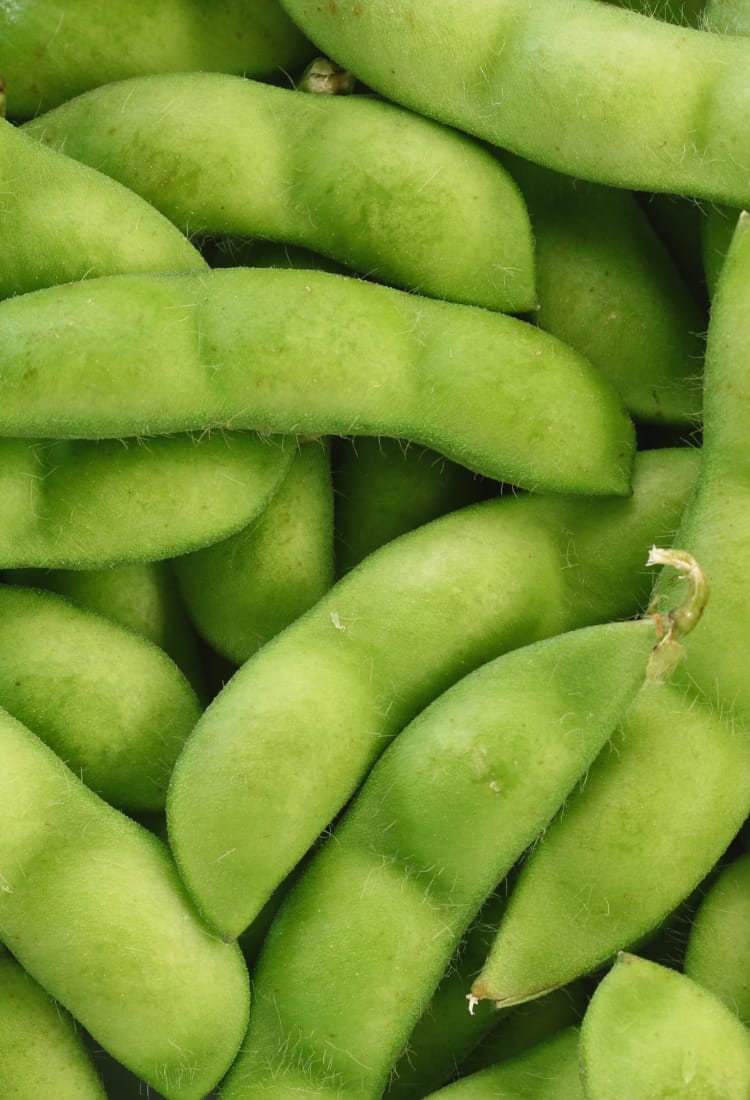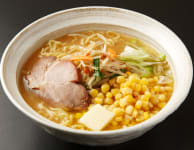Being a vegetarian or vegan in Japan is a challenge, but veggie travelers shouldn't be deterred because there is plenty to keep you well-fed
Japanese cuisine is known for its heavy use of meat and fish, and even stocks and sauces usually have some ingredients containing meat.
Vegetarianism and veganism are not as popular in Japan as it is in the West, so you'll find there's often some confusion as to what you can and can't eat. However, with a little planning, it's possible to navigate Japan and even sample vegetarian or vegan Japanese food, without compromising your diet.
If you're a little adventurous, you may even discover some new ingredients to add to your vegan cooking arsenal when you go back home.
Vegetarian in Japan
Japanese food can be delicious and wholesome for both vegans and vegetarians. Rice and vegan-friendly noodles make up the base of most dishes. Tofu is available in a staggering variety of shapes and textures. Miso, a seasoning made of fermented soybeans and koji (a fungus) is in many dishes. Natto, fermented soybeans, are a staple of the cuisine and fresh or pickled seasonal veggies are easy to find.
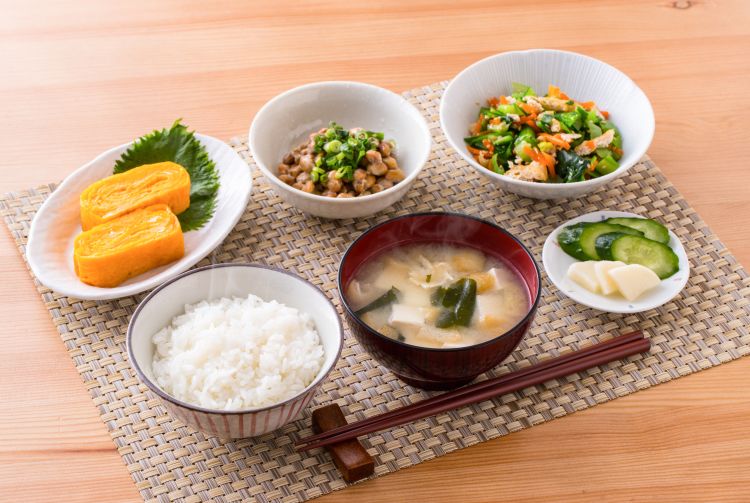
However, even when meat or fish isn't immediately evident in a dish, there's often hidden ingredients such as meat or bonito flakes that render a dish vegan unfriendly.
While vegetarianism is gaining momentum, “vegetarian,” as an import word, is less definitive and often understood in a broader sense in Japan. Simply requesting vegetarian meals may not be sufficient. Language and cultural barriers can be challenging, but we've put together some tips on ordering veggie to help you enjoy a diet-compliant and culturally exciting trip in Japan.
Veggie bites for intrepid travelers
Zen Buddhism first arrived in Japan in A.D. 538 and prompted Emperor Tenmu to prohibit the killing and eating of meat in A.D. 675. The ban lasted approximately 100 years (though was largely ignored).
Today, vegetarianism in Japan still retains close ties with the Zen Buddhist community. Its cuisine, shojin ryori, is an important part of monks' devotion to a life of abstention from violence against living beings. Shojin ryori is found almost exclusively in Buddhist temples, meaning it's not a feasible option for fueling your entire trip to Japan unless you're staying at shukubo (temple lodgings) the whole time. However, if you get the chance to try shojin ryori, it makes a light, healthy and beautifully photogenic meal, which is a fun cultural experience for vegetarians and meat-eaters alike.

The elegant and artfully prepared cuisine, served on beautiful plates and dishes of Kamakura lacquerware, tends to be made up of soybean-based foods, such as tofu, along with seasonal vegetables. It is believed to bring balance to mind, body, and spirit. Great care is taken to avoid waste in preparing this cuisine, and even the tops of vegetables are used for stock.
One word of warning; traditionally, shojin ryori is vegan—and even omits pungent flavors like garlic and onion—but the use of dairy is not considered harmful to animals by modern monks, so it is occasionally used. Check ahead to avoid any unpleasant surprises.
Veggie cuisine is gaining momentum in urban Japan
Japanese culture is renowned for subtle attention to detail, dedication, and refinement. Furthermore, options for veggie lifestyles are expanding along with recognition.
Nowadays, many veggie restaurants are displaying an official vegan or vegetarian sticker of approval issued by The Japan Vegan Society, VegeProject Japan or The Japan Vegetarian Association.
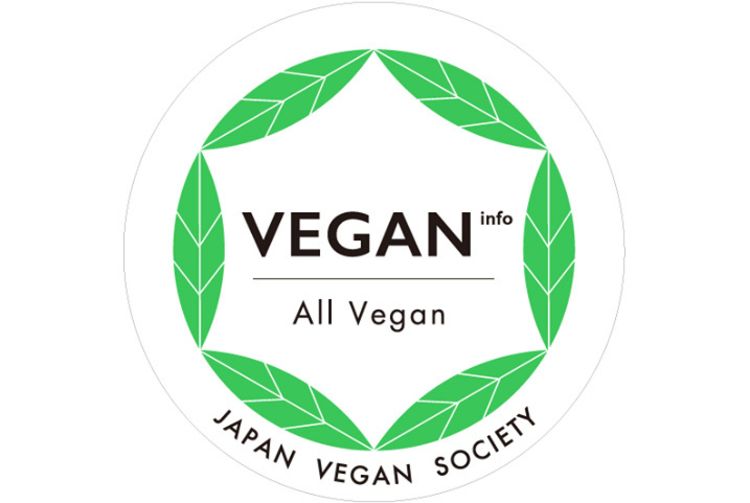
The Japan Vegan Society

VegeProject Japan
And culinary enthusiasts and chefs are continuously creating and refining new vegan recipes, creamy tofu “cheeses,” vegan eggs, vegan meat, and unique ramen alternatives that could fool even the most avid meat-lover. If you are looking for modern or Japanese fusion veggie cuisine, seeking out some of the progressive veggie focused restaurants could be the key to new discoveries.
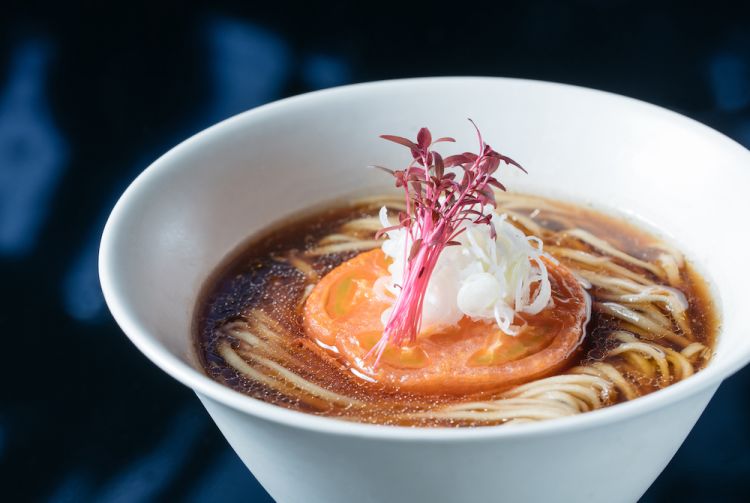
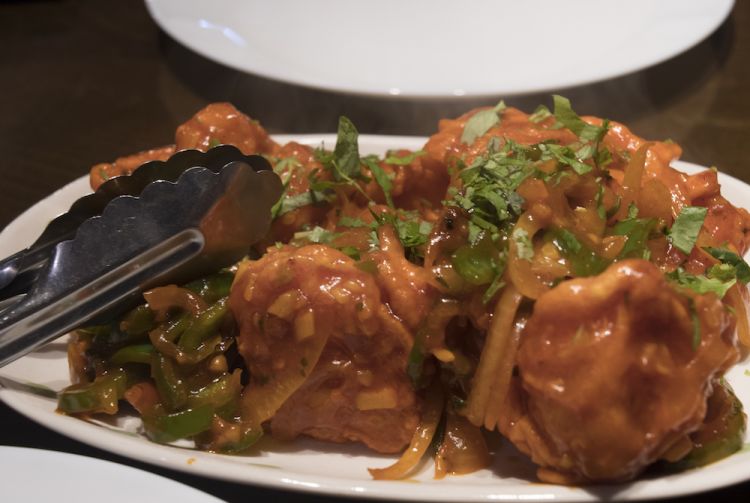
Check out the dedicated portal sites below to search for vegetarian and vegan restaurants in your destination city or surrounding urban area.
Traveling in rural Japan
When you're outside of major cities, consider staying in a ryokan where they will be able to create spectacular feasts of vegetarian Japanese food if you contact them ahead of time with details of your dietary needs. Some are particularly proud of their vegetarian cuisine, so search online to see which ones specialize.
Konbinis (convenience stores) are a surprising goldmine of veggie snacks, perfect for when you're in a bind. They're cheap, can be found all over the place, and always stock a few things you can eat for some quick sustenance. Onigiri (rice balls) can be found in the fridge sections. Many will be filled with fish, but there are usually some umeboshi (sour pickled plum) and kombu (dried kelp) options. For on-the-go protein, natto (fermented soybean) is available in ready-to-eat packages, but, be warned, the accompanying sauce is often dashi (fish stock).
Packaged beans, edamame, simple garden salads and inarizushi (rice in a tofu pocket) are all options that can help you make a filling meal when other options aren't available. Vegetarians have more options, with cheese strings, quail eggs and lots of pastries to choose from. Consider taking your own soy sauce around with you for a splash of fish-free flavor when only the basics are available.
For more inspiring Japanese cuisine, there are a few dishes you can try, such as vegetable tempura, tsukemono (pickled vegetables), tofu and tofu skin, nasu dengaku (miso-marinated grilled eggplant), zaru soba (boiled and chilled buckwheat noodles), kappa maki (seaweed sushi rolls with cucumber), takuan maki (daikon sushi rolls) and, if you're lucky, you can find vegetarian (though not vegan due to egg) okonomiyaki (Japanese pancake) .
Tips for ordering veggie & vegan
Vegetarian is an import word and, though widely understood, can be a more flexible in definition than in English.
When ordering, be specific about what you cannot eat. Say no meats, seafoods, or animal products including dashi or stocks.
If the waiter seems unsure, reiterate that no meat also includes chicken, pork, and fish (what may seem like a reluctance to accommodate could simply be a lack of understanding).
Print out a written explanation or card detailing your dietary requirements in Japanese.
Restaurants and izakayas with photo menus can be very helpful. But be sure to check the dashi and base ingredients for fish or animal products.
Notify establishments of dietary requirements in advance when making reservations, particularly if it's a set menu.
Translation apps such as Google Translate can also be a great tool to have on hand.
Kosher and Halal Eating in Japan
How accommodating is Japan toward halal (Islamic) and kosher (Jewish) food?
Awareness and accommodation of Halal and Kosher diets is still far from optimal compared to vegetarianism and veganism. According to the strictest standards, there are almost no restaurants in Japan that specialize in Kosher food. Kosher has various restrictions, such as no pork, shrimp, or crab, no meat, and dairy products, combined with requirements concerning the slaughter process. If you adhere to Kosher diet, be sure to look carefully at the menu list and choose dishes that do not contain prohibited foods when eating out. Kosher Japan is a kosher certification organization in Japan that offers mail order and delivery services of kosher certified foods and operates kosher hotel chains.
The focus toward Muslim-friendly initiatives (halal food promotion), pursued by national and local governments, has an expansion of halal-certified products and halal-compliant restaurants throughout Japan. You can find restaurants with official Halal certificate of recognition issued by the Halal Japan Business Association or Japan Muslim Association.
These are gourmet search site that provides information on halal restaurants throughout Japan.




















































